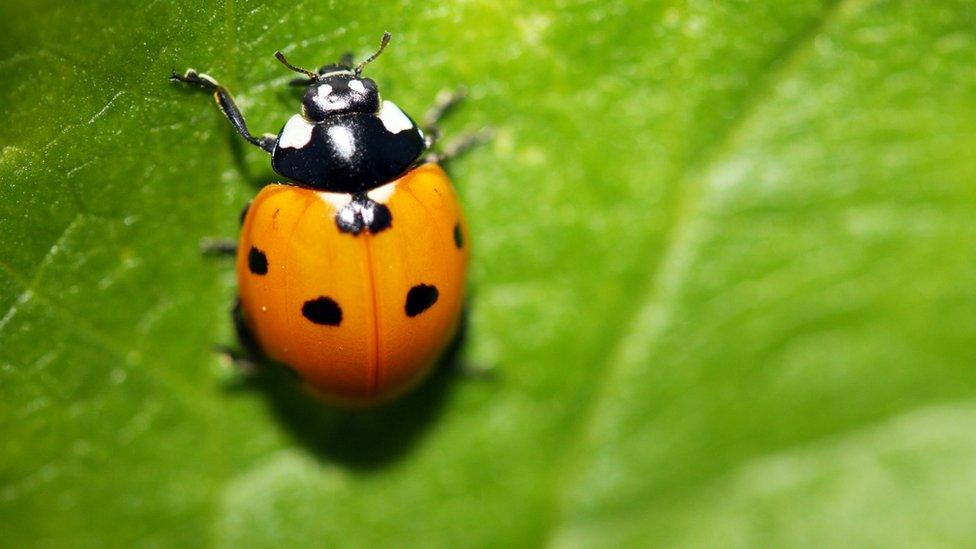Butterfly previously extinct in England bred in forest
- Published
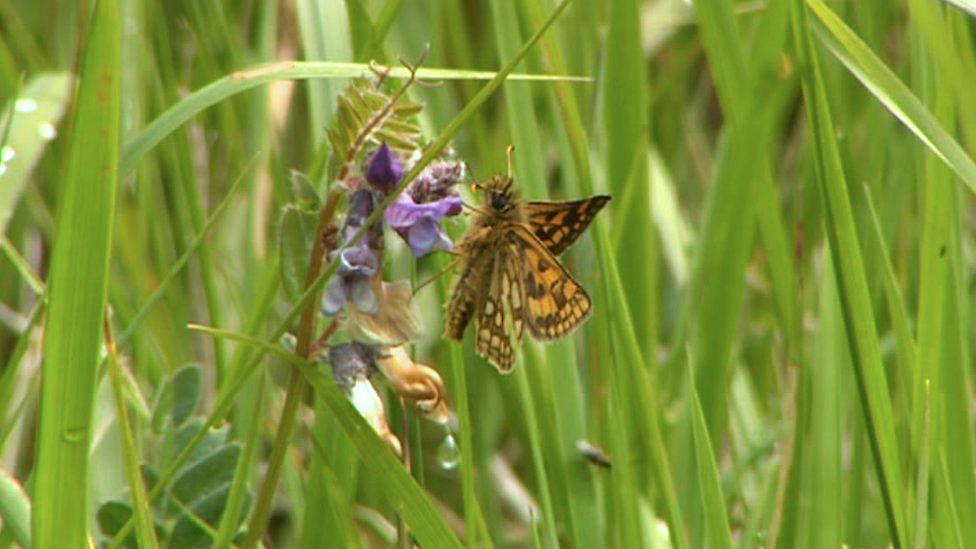
The chequered skipper became extinct in England in 1976 but is still in parts of Scotland
A butterfly that became extinct in England more than 40 years ago has been bred for the first time in a secret forest location.
The chequered skipper was always scarce but died out in 1976 due to changes to woodland management.
The new offspring are from Belgian adults released in Rockingham Forest, Northamptonshire last year.
Dr Nigel Bourn, of the charity Butterfly Conservation, said spotting the insect was "an incredible moment".
He said: "I saw in one tiny butterfly the result of so many peoples' hard work and dedication that has got us to this point."
The charity said a decline in coppicing and maintaining long narrow tracks or rides, as well as a rise in conifer plantations which did not suit the butterfly, led to the breed's extinction in England.
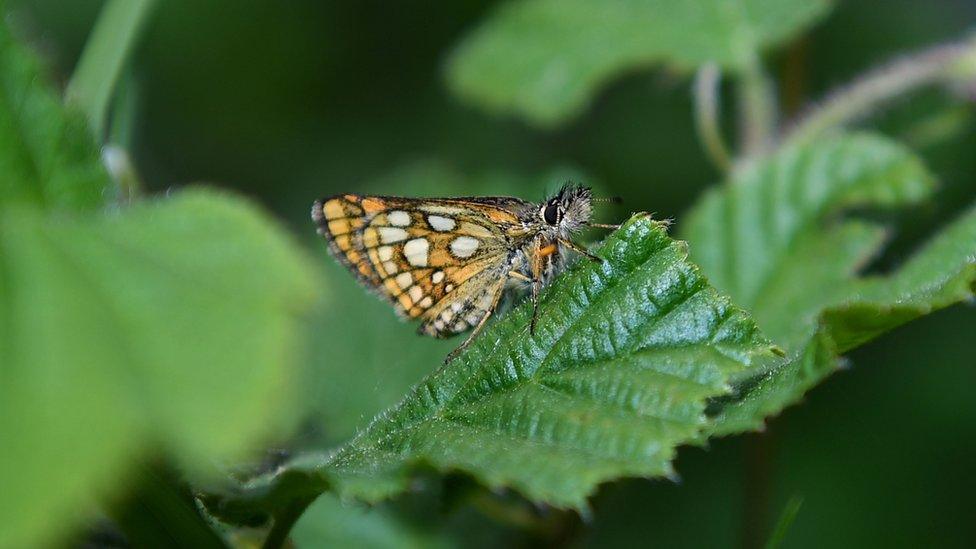
The adults from Belgium were chosen as they come from a similar landscape to Rockingham Forest
The butterflies caught in Belgium, and brought to the UK on Eurostar, were released at the secret site in the forest last spring as part of the project by wildlife charity Butterfly Conservation.
Susannah O'Riordan, from the Back from the Brink project, said the team initially thought the British weather meant the butterflies may not mate.
"Just after the butterflies emerged it was really cold and damp so they weren't very active," she said.
Ms O'Riordan also said there was uncertainty over the effect the mild dry winter would have had, but the experts have now seen the offspring of the Belgian adults.
This month another batch of 24 Belgian Chequered Skippers, which can also be found in Scotland, have been released at the undisclosed Rockingham Forest site.
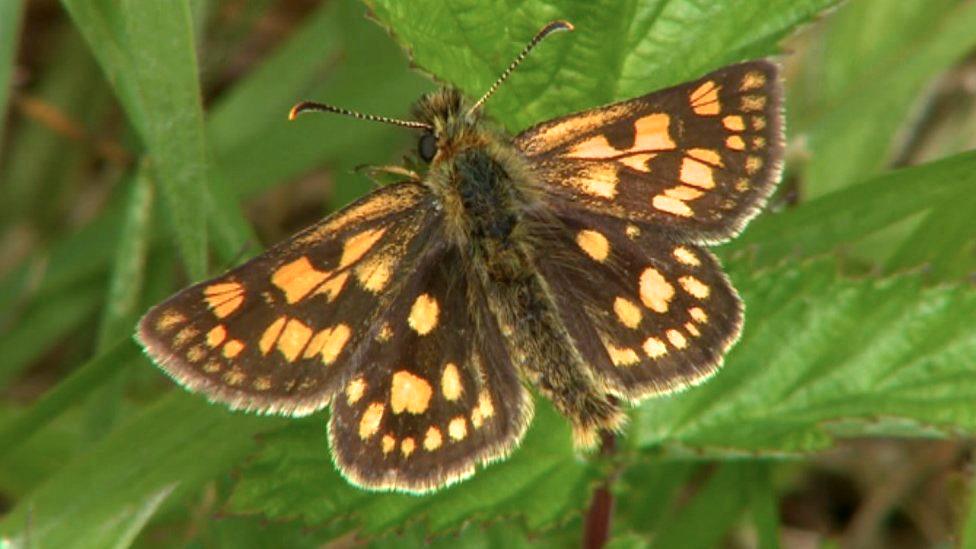
A second batch of butterflies have been released at secret site after collection from Belgium
Dr Dan Hoarse, from Butterfly Conservation, said the release of the butterflies was "the easy bit".
He said: "We are in the second year of three-year project.
"We'll know if its a success in the long term when we pick up the butterfly in woodland where we didn't let it go."
- Published24 May 2018
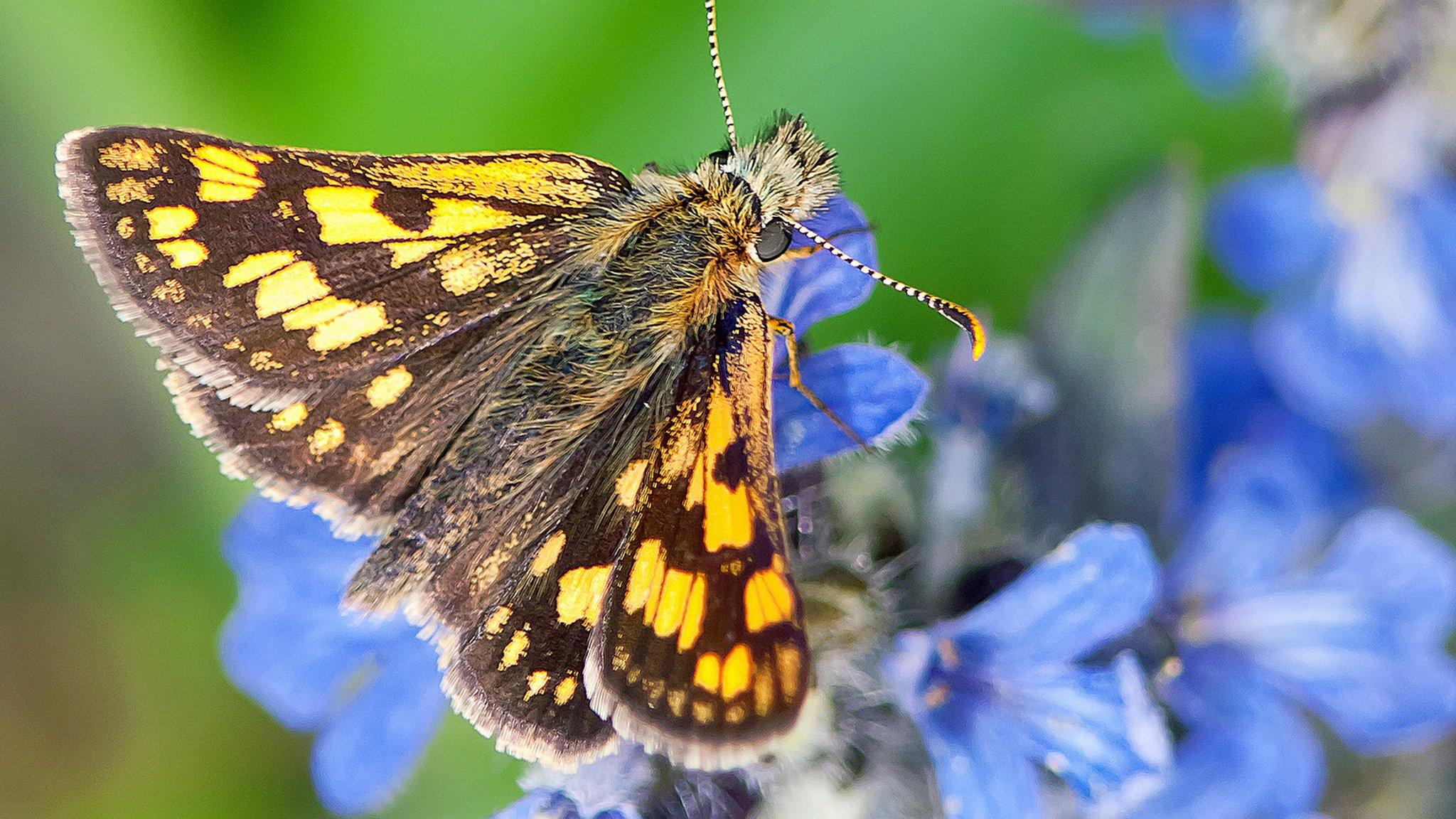
- Published1 May 2018
